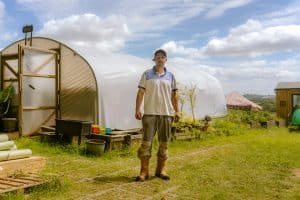Measuring our performance

The Integrated Care Board is assessed on its performance against national targets set by NHS England. We are making good progress and are one of the leading ICBs in many target areas.
Urgent, emergency and elective care
We make sure help is there when you need it. This includes, ambulances, NHS 111, community response teams and hospital care – where we significantly expanded our Same Day Emergency Care at all our hospitals, which aims to see, treat and discharge people within 24 hours.
Our area is the best in the South West and second best in the country at ensuring people receive a diagnostic test within six weeks, with 90.3% of people being seen in this timeframe against a national target of 85%.
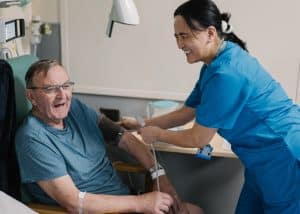
Primary care
In 2023/24 we delivered 6 million primary care appointments, that’s 4% more than the previous year.
40% of all our appointments were provided on the same day they were requested, and 85% of our total appointments were provided within 14 days.
We also saw our primary care workforce increase by 3% and we achieved the national target for additional roles.
Digital technology has expanded rapidly too with 67% of practices using advanced telephony, 72 practices signed up to enable online patient access to records, 60% of eligible patients signed up to the NHS app and all practices offering online consultations.
Working with NHS partners and local stakeholders and community leaders, we have also been able to secure a new provider of NHS dental services in the St Pauls area of Bristol.

Mental health
This year we have been working collaboratively with organisations in our system and people with lived experience of mental health difficulties, to deliver better mental health for all. Some of our achievements include:
- 68% of people with dementia receiving a diagnosis, exceeding the national target (65+)
- Sending fewer people out of area for an acute mental health bed
- Embedding mental health support teams in schools, helping to improve access to support
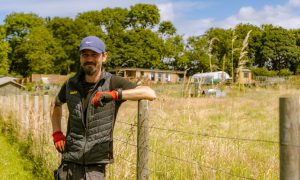
Measuring our performance case study: Health checks for people with severe mental illness
People with severe mental illness (SMI) face one of the greatest health equality gaps in England with a life expectancy 15-20 years shorter than the general population. This gap is largely due to preventable physical illnesses.
That’s why everyone with an SMI is entitled to an annual physical health check, so early warning signs for conditions such as diabetes, cardiovascular disease and respiratory diseases can be identified and treated sooner.
Working alongside health and care partners from across the system, the ICB has exceeded the national standard for the uptake of health checks for people with severe mental illness, with an 81% uptake rate against the national target of 75%.
Dr Natasha Ward, Clinical Lead for Mental Health at Bristol, North Somerset and South Gloucestershire Integrated Care Board, said:
“We have worked hard with our partners over the last three years to increase the number of people with severe mental illness diagnoses who receive an annual physical health check. We have put new resources into mental health and primary care, provided good practice guidance and set up a project in Inner-City Bristol to ensure that particular ethnic minority communities are treated fairly.
“Going forward we will be focusing our attention on ensuring that the health checks are followed up, that we support the engagement of those small numbers of people who continue not to receive any of the health checks and that we take specific action to address the particular health inequalities faced by some ethnic minority communities.”
Pam Bugler, a representative with lived experience on the Severe Mental Illness Physical Health Improvement Group, said:
“We have worked together to co-produce all the actions we have taken so far to improve the take up of physical health check appointments for those people who are on the Severe Mental Illness Register. I am very proud that this year we reached 81% of people on the register receiving a full physical health check. Of course, our task is not complete in that we have to be sure that, not only have they had their checks, but if necessary, the results are acted upon and that they are repeated annually.”
Video: Hear Dr Natasha Ward talk through the improvements in the uptake of health checks among people with severe mental illness.
Safeguarding

Safeguarding means protecting people’s health, wellbeing and human rights, and enabling them to live free from harm, abuse and neglect. Those most in need of protection include children and young people, and vulnerable adults such as those receiving care in their homes, and those with learning disabilities.
As an ICB we are responsible for leading safeguarding activity across Bristol, North Somerset and South Gloucestershire, working in partnership with our three local authorities as statutory partners in local Safeguarding Partnerships and Boards. Together, we-ordinate the work of a wide range of agencies to protect children and adults with care and support needs.

Safeguarding Case study: Sharing best practice
We’re committed to working more collaboratively with our safeguarding partners following the transition to an integrated care system. In 2023/24, we joined our three local authorities, Avon & Somerset Constabulary and the Local Government Association in a detailed review of our safeguarding partnership arrangements. This highlighted areas of good safeguarding practice which could be replicated across the system, such as our ICON training programme for health and care professionals which aims to prevent Abusive Head Trauma in babies and infants.
Video: Members of the ICB Safeguarding Team highlight ICON training that is being delivered across the system.
People and communities
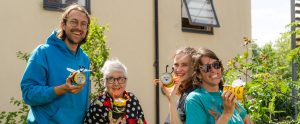
Local people are at the heart of everything we do. By listening to our communities’ experiences and involving them in decisions about service design, we aim to make sure local health and care services fully reflect their needs, aspirations and priorities.
Our approach to community engagement is detailed in our Working with People and Community Strategy. This was developed during 2023/24 and sets out our commitment to:
- Turn understanding of our population into action
- Ensure our decision-making is informed by insight and lived experience
- Make co-production everyone’s business and embed best practice.
Our vaccination programme has produced leading campaigns, with our work to increase MMR vaccination uptake. The campaign, called ‘Let’s Talk about MMR’, included the production of a video focused on young people aged 17 to 30 of Somali heritage encouraging them to consider the MMR vaccine. This achieved national recognition with the video used and shared widely among health and care systems and local councils across the UK as well as NHS England as part of a national campaign.
Visit the Healthier Together YouTube channel for the full MMR playlist
Video: Hear Dr Asha Mohammed and local community members explain why the MMR vaccine matters and how it can help protect people.
People and communities case study: The VCSE Alliance
Voluntary, community and social enterprises (VCSE) organisations are key partners in our engagement activity and during 2023/24 we launched an exciting new initiative to develop the way we work together. The Bristol, North Somerset and South Gloucestershire VCSE Alliance brings together a wide range of local VCSE organisations to inform local decision making while also providing NHS, health and social care services with a single route of contact with the local community.
You can read more about the Alliance on the Healthier Together website.

Health inequalities

We know that gaps in care and support affect those with the greatest needs and poorest outcomes the most. There is real potential to reduce health inequalities by making sure our marginalised and disadvantaged communities are reached appropriately, listened to, and involved in developing action and making changes to services. We want to make sure we are hearing what they need and working with them to make things better, for example by tackling language barriers that can make it harder for some groups to access services.
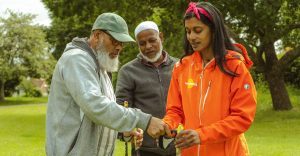
Health inequalities case study: Suspected Cancer Referral Pathway video
‘Fast track’ referrals allow GPs to refer their patient to a specialist for urgent investigation if they suspect their symptoms might suggest cancer. It’s a vital service, but our insight suggests that take-up of appointments can be lower among members of certain minority ethnic groups and particularly women. We worked with local practices, hospitals and community groups to co-produce a video that explained the fast track process and helped people visualise what would happen on their appointment. Featuring residents from Bristol’s minority ethnic community as actors, it was produced in multiple language versions as well as British Sign Language and is now routinely shared by local GPs when making a referral.
Visit the Healthier Together YouTube channel to access the full Cancer Fast Track referrals playlist
Video: This short video talks through what happens during the fast track cancer referral process.
Sustainable development

Climate change is one of the greatest threats to global health, with serious implications for our wellbeing, livelihoods, and organised society. Our health and care system has put sustainability at the core of its aims and objectives and our Green Plan sets out our ambition not only to minimise the negative impact of our activities on the environment, but also to:
- Improve the local environment, creating a cleaner, safer and more ecologically sound environment across our services
- Achieve net zero carbon by 2030, by urgently addressing our carbon footprint
- Generate a BNSSG-wide movement, working together as leading local institutions to change our sustainability behaviours, actions and innovations to improve air quality, biodiversity and the quality of the natural environment.
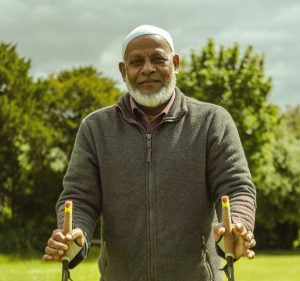
Case study: Implementing a sustainability dashboard to the ICB Gateway Process
We’re committed to assessing the impact of our services on the environment. During 2023/24 we took the decision to adopt a new Sustainability Impact Assessment tool, to support improved decision-making within our health and care system and ensure that services support our sustainability ambitions. The tool includes a carbon cost calculator and considers services’ net zero impact as well as social value. This will be implemented into the ICB Gateway Process which provides a standardised structure for system-wide projectsd. It will be introduced across our health and care system by September 2024.
